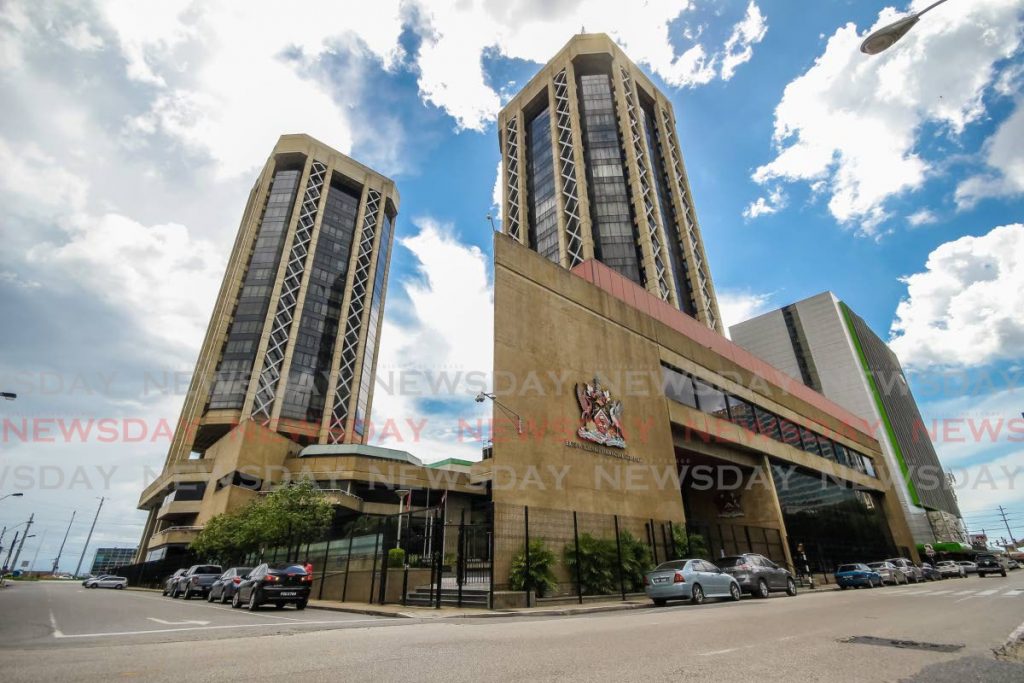TT needs 'structural reform', says Central Bank

The Central Bank is advising of the need for structural reform, as TT's economy struggles under the weight of covid19 restrictions and a continuous decline in the energy sector.
"Overall, the impact of the pandemic has heightened the imperative for coordinated fiscal, monetary and structural policies for assuring macroeconomic stability," the bank advised in its July 2020 economic bulletin on Tuesday.
"Structural reform is especially important to increase the ease of doing business; enhance flexibility in the provision of public and private sector goods and services; and move forward widespread and safe adoption of digital processes. At the same time, the virus’ pervasive reach has put a stronger light on distributional issues, notably the need to protect the most vulnerable members of society who are likely to bear a disproportionate burden from the pandemic."
The bank forecast further declines in TT's energy sector, even as Government voiced its hope in deepwater exploration to keep the industry afloat.
The bank said, "the energy sector is expected to slow as global economic activity and international travel have been curtailed, resulting in significant contractions in demand for many energy products."
The contraction in global activity is due to the covid19 pandemic which led many nations to close their borders, or restrict travel to certain countries, with the consequent fallout on economies.
"On the domestic front, activity in the energy sector declined in the second quarter of 2020. Broad contractions were observed in this sector, including natural gas, crude oil, liquefied natural gas while methanol output improved," the bank reported.
Its bulletin was released on the same day, Government held a press conference on BHP's plans to begin exploration in Broadside Block 3, off the northern coast.
Energy Minister Franklin Khan said despite the pandemic, the upstream sector was "largely spared major disruptions" and oil and gas production maintained levels required to meet demand and investments.
However, the bank noted declines in the energy sector and "sluggishness" in the non-energy economy during the first quarter of the year.
Lower natural gas output was the reason for "widespread contractions" in the sector, the bank said, as production fell by 6.1 per cent, compared to the 2019 second quarter, "given lower output from bpTT, the country’s largest natural gas producer."
Crude oil production was down 5.7 per cent to average 55,945.3 barrels per day in the second quarter of 2020.
"Along with the decline in natural gas production, activity in the midstream sector also registered decreases. Liquefied natural gas (LNG) production fell by 2.3 per cent and natural gas liquids (NGLs) output fell by 9.1 per cent," the bank said.
The closure of several petrochemical plants led to a 10.9 per cent decline in output in the second quarter, it added.
"Methanol production suffered the largest decrease (25.1 per cent year-on-year) aided by the suspension of operations at Proman’s TTMC II (M3) facility, the Caribbean Methanol Company facility and the Yara facility."
Ammonia was the saving grace, with the bank reporting a "strong performance" by several ammonia producers in the second quarter which led to a 2.4 per cent increase in production over the second quarter of 2019.
Supporting its report with data, the bank said the Energy Commodity Prices Index (ECPI), an indicator of the average prices of TT’s energy exports, declined 30.1 per cent during the first eight months.
"Following low energy demand and excess supply at the close of 2019, international crude oil prices were further suppressed by geopolitical tensions and adverse demand shocks emanating from the pandemic." The bank said benchmark West Texas Intermediate fell 33.3 per cent to an average of US$38.05 per barrel between January to August. The Henry Hub natural gas price declined by 29.1 per cent to average US$1.86 per million mmbtu over the same period.
As for the non-energy sector, the bank expects it to remain "sluggish" as Government continues to implement public health measures in response to the virus.
"Moreover, global supply disruptions will have knock-on effects on domestic manufacturing, and wholesale and retail trade. Inflation is expected to stay subdued. Working conditions—including shift lengths and timing, rostering and ‘work from home’ arrangements—have already adapted to the changed circumstances in recent months and will continue to evolve."
The bank laid out Government's financial position, reporting on its $10.7 billion deficit for the first nine months of the 2019-2020 fiscal year (October to June), $4.8 billion more than the previous year, and a net public sector debt of $120.5 billion (July 2020) up from $103 billion (September 2019).
It noted Government's report in the June mid-year budget review of an expected $14.5 billion deficit, significantly higher than the $5.3 billion estimates due to its social relief programme for covid19, and the fall in energy revenue because of the slump in prices.


Comments
"TT needs ‘structural reform’, says Central Bank"